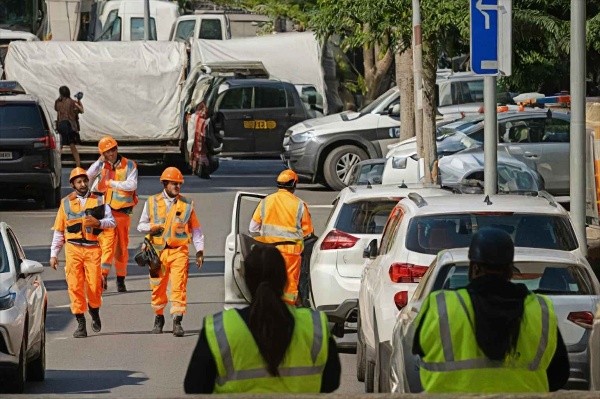Iran’s Plan to Strike Back Against the U.S.
Iran’s Military Preparations Following U.S. Attacks
Loading...

At least one confirmed killed, 13 injured as ‘large volley of rockets’ fired across Israel from Lebanon.
Hezbollah's Rocket Barrage and Drone Strike
In a significant escalation of hostilities, a drone struck Israeli Prime Minister Benjamin Netanyahu's holiday home in Caesarea, northern Israel, on Saturday. This incident coincided with a large-scale rocket barrage launched from Lebanon, resulting in one confirmed death and injuries to at least 13 individuals. The dual attacks have raised alarms throughout the region and heightened security concerns within Israel.
Details of the Attack
According to reports from Al Jazeera, a spokesperson for Netanyahu confirmed that one of three drones launched from Lebanon successfully hit the Prime Minister's residence. Fortunately, Netanyahu was not present at the time of the attack, and there were no casualties reported from the drone strike itself. The Israeli military intervened to intercept the two remaining drones, underscoring the urgent need for robust air defense measures in the region.
In addition to the drone attack, over 100 rockets were fired into northern Israel, triggering air raid sirens in cities such as Tel Aviv, Galilee, and Haifa. The rapid succession of these attacks has left residents on edge and prompted a swift response from Israeli authorities.
Security Implications and Concerns
Al Jazeera’s Nour Odeh provided insights into the gravity of the situation, reporting from Amman, Jordan, due to restrictions on media presence in Israel. Odeh noted that Israeli authorities are treating the drone strike on Netanyahu's home as a potential “assassination attempt.” Although definitive verification of such intentions remains elusive, the perceived threat level has prompted heightened security measures.
Odeh highlighted the alarming fact that the drone managed to traverse 70 kilometers from the Lebanese border undetected, striking its target without triggering any alarms. This breach of security has raised significant concerns within Israeli defense circles, indicating potential vulnerabilities in the nation's air defense systems.
Hezbollah's Ongoing Hostilities
This recent escalation is part of a broader pattern of violence between Hezbollah and Israel, which has been ongoing since October of the previous year. The Iran-aligned militant group has engaged in a series of attacks against Israeli targets, prompting a strong military response from Israel. The use of a coordinated rocket barrage to mask the drone attack on Netanyahu's residence illustrates a tactical shift in Hezbollah's approach to engaging with Israel, complicating the security landscape further.
The Strategic Importance of Haifa
Haifa, Israel's largest northern city, has been a focal point in these recent tensions. As a strategic port city and home to the country’s naval headquarters, Haifa’s security is paramount. The activation of air raid sirens in Haifa and surrounding areas underscores the widespread impact of the ongoing conflict, affecting civilian life and raising fears of further escalations.
Conclusion
The drone strike on Prime Minister Netanyahu's home, coupled with the large-scale rocket attack from Lebanon, marks a significant moment in the ongoing conflict between Hezbollah and Israel. As the situation develops, Israeli security forces are likely to reassess their defensive strategies to safeguard against future threats. With concerns about drone capabilities and the effectiveness of existing defense systems at an all-time high, the potential for further violence remains a pressing issue for the region. The international community watches closely as tensions rise, hoping for a resolution to the conflict that continues to affect countless lives.
Editor
Iran’s Military Preparations Following U.S. Attacks
Troops remain in five strategic locations, raising fears of renewed tensions and long-term occupation.
Opposition forces have taken control of the capital after a significant offensive. Here is how it unravelled.
